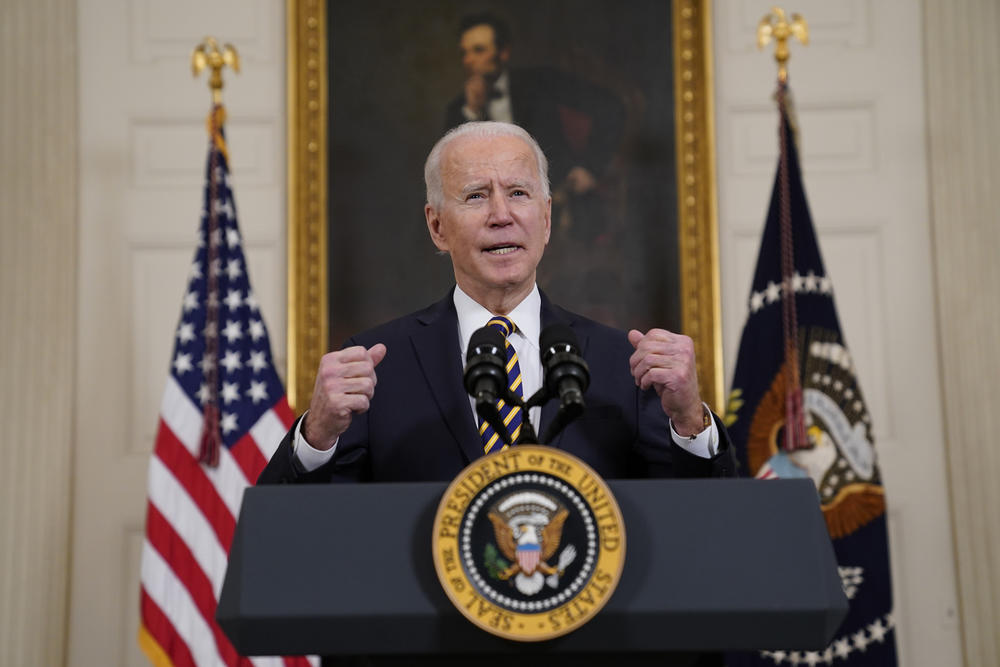
Caption
President Joe Biden speaks on U.S. supply chains, in the State Dining Room of the White House, Wednesday, Feb. 24, 2021, in Washington.
Credit: (AP Photo/Evan Vucci)
On Friday, the U.S. House is expected to vote on a nearly $2 trillion COVID-19 relief bill including direct payments to those making less than $75,000 a year, help for small business and money for local governments. GPB’s Ellen Eldridge reports that’s good news for many towns and cities in Georgia.

President Joe Biden speaks on U.S. supply chains, in the State Dining Room of the White House, Wednesday, Feb. 24, 2021, in Washington.
On Friday, the U.S. House is expected to vote on a nearly $2 trillion COVID-19 relief bill. It includes direct payments to those making less than $75,000 a year, help for small business and money for local governments. That’s good news for many towns and cities in Georgia.
The state stands to get around $4.7 billion dollars overall from the relief package, which could help offset some of the $1.2 billion in budget cuts from the state’s education system.
RELATED: Budget Cuts Could Mean Fewer Teachers, Food Inspectors And Less Money To Clean Up Toxic Waste
The federal CARES Act, which former President Donald Trump signed into law last March, provided $150 billion through the Coronavirus Relief Fund to all states as well as the 38 cities with more than 500,000 people.
Gov. Brian Kemp asked federal lawmakers in
a Feb. 23 letter
to use the same funding methodology in the $1.9 trillion coronavirus aid package as was used in the CARES Act. He called the new funding formula "unacceptable," saying the formula being considered by Congress would distribute funds solely on a per capita basis that would give 50% more to a New York resident than a Georgian.
But the American Rescue Plan includes more than $500 million in direct aid to Georgia cities and counties, whereas most did not get direct payments last year as part of the CARES Act, said Danny Kanso with the Georgia Budget and Policy Institute.
"In order to qualify for direct aid from the federal government under the CARES Act, local governments had to have a population over 500,000," Kanso said. "And in Georgia, that is only one city, the city of Atlanta. And, of course, the major counties."
Cities such as Savannah and Athens-Clarke County rely heavily on tourism and on economic development. These places have seen significant revenue declines.
MORE: Metro Atlanta Mayors Slam ‘Inequitable’ Distribution Of COVID-19 Relief Money
The city allocation is based off of what's called the community development block grant formula, Kanso said, and that takes an account of both the poverty level and the population in cities and municipalities across Georgia.
If the bill passes the House it will then head to the Senate, where it could face tough opposition.
A group of Senate Republicans countered Biden's plan, saying it was too costly. Their $618 billion proposal eliminated the $350 billion for state and local governments entirely.
A $900 billion COVID-19 relief package that passed in December, when Republicans controlled the Senate and occupied the White House, also contained no financial aid for state and local governments.
"This (American Rescue Plan) package is certainly much broader and will directly touch just about every local government across the state as it stands now," Kanso said.